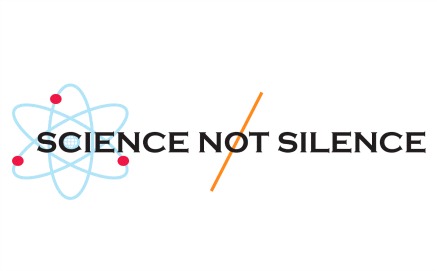“What do we want? Data! When do we want it? Forever!”
“When I say peer, you say review! Peer! Review! Peer! Review!”
 Those chants went up at the Women’s March in January. They’re likely to be heard again at the March for Science that will take place on Saturday.
Those chants went up at the Women’s March in January. They’re likely to be heard again at the March for Science that will take place on Saturday.
But the chants were likely inspired by an open letter written in mid-November by four women scientists and published in Scientific American.
One of its authors cast the core sentiment of the letter as follows: Sexism, inequality, discrimination and anti-intellectualism threaten the progress being made in our society, and ultimately science itself is under attack.
Initially the writers aimed to build a network of 500 women; thus the name 500 Women Scientists. They made a public commitment to speak up for science—and for women, minorities, immigrants, people with disabilities and LGBTQIA people.
By now, more than 17,000 women from over 100 countries have signed on, pledging to build an inclusive scientific community.
Women scientists on a mission
The broad mission of 500 Women Scientists is to “promote a diverse and inclusive scientific community that brings progressive science-based solutions to local and global challenges.” The organization’s aims include empowering women to reach their full potential in science and promoting scientific literacy through public engagement.
Many of us at Montefiore/Einstein and at our sister institutions are poised to advance those aims.
By now, everyone is familiar with the terms “fake news” and “alternative facts.” Yet according to a recent Stanford study, more than 80 percent of students (middle school through college) could not identify fake news. In a February 10 post on this blog, Dr. Paul Marantz wrote in “Just How Important Are Facts?” that “‘truth’ is an elusive concept requiring the analysis and application of factual information.”
While Dr. Marantz referred to facts as they pertain to clinical researchers, the question of facts at the heart of this movement is focused on scientific literacy. Clinicians can think of it as a close cousin of “health literacy”―the capacity to obtain, process and understand health information in order to make informed healthcare decisions. Attempts to undermine facts eventually undermine what the general public knows about science and health.
Boosting science literacy
I’m not a clinician, but I am going to take the liberty of diagnosing our country’s need for scientific literacy as acute. It’s notable that 69 percent of Americans don’t view scientists as partisans; even among conservative Republicans, more than half are confident that scientists act in the public interest. So scientists have the “cred” in red, blue and purple states to promote scientific literacy. As American women scientists, we have borne witness to the recent instances of sexism, inequality and discrimination that threaten scientific progress.
So what steps can we take? As a start, we can get involved with groups such as 500 Women Scientists. Its website offers information on the following:
- The March for Science: Consider attending this march on April 22 (Earth Day) in Washington, DC, or one of the many satellite events planned. Sign up at the March for Science. As the organizers write, “the mischaracterization of science as a partisan issue, which has given policymakers permission to reject overwhelming evidence, is a critical and urgent matter. It is time for people who support scientific research and evidence-based policies to take a public stand and be counted.”
- Strike Teams: Teams nationally and internationally will monitor and act on day-to-day issues in the news and government actions. Montefiore/Einstein scientists and others can become involved by writing collaborative policy briefs and articles, contacting policymakers and acting as liaisons among the 500WomenScientists leadership team, supporters and the broader community.
- Pods: These are local chapters of 500 Women Scientists who participate in a variety of actions . There is a pod in New York City, home to Einstein, and there are many others across the country.
These are just some of the tools with which we plan to fight, not just for science, but for the heath and welfare of everyone on this planet.

